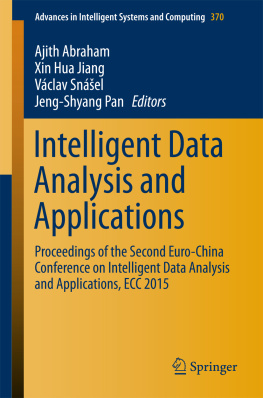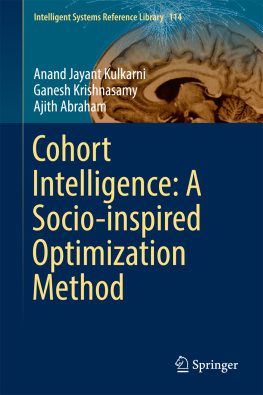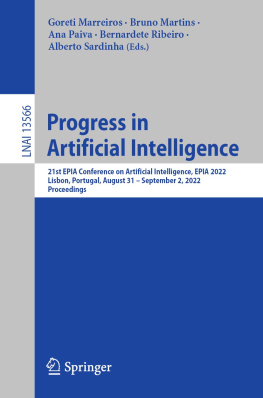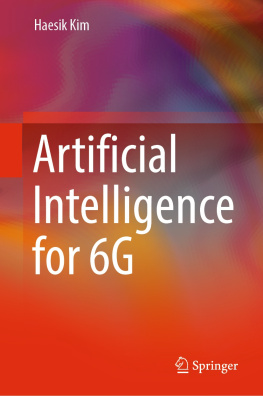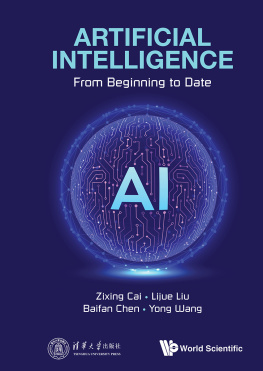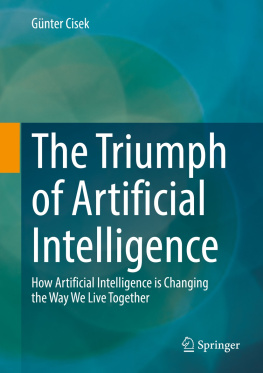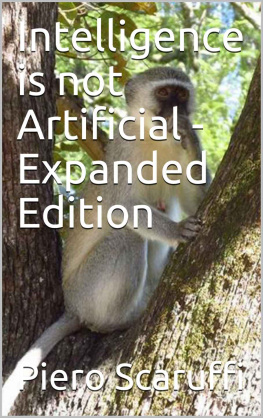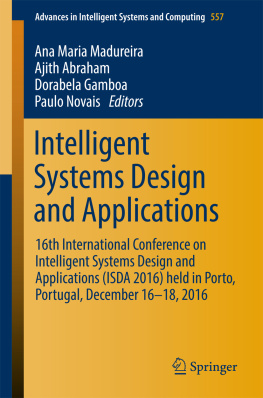Abraham Ajith - Artificial Intelligence for Neurological Disorders
Here you can read online Abraham Ajith - Artificial Intelligence for Neurological Disorders full text of the book (entire story) in english for free. Download pdf and epub, get meaning, cover and reviews about this ebook. year: 2022, publisher: Elsevier Science & Technology, genre: Romance novel. Description of the work, (preface) as well as reviews are available. Best literature library LitArk.com created for fans of good reading and offers a wide selection of genres:
Romance novel
Science fiction
Adventure
Detective
Science
History
Home and family
Prose
Art
Politics
Computer
Non-fiction
Religion
Business
Children
Humor
Choose a favorite category and find really read worthwhile books. Enjoy immersion in the world of imagination, feel the emotions of the characters or learn something new for yourself, make an fascinating discovery.

- Book:Artificial Intelligence for Neurological Disorders
- Author:
- Publisher:Elsevier Science & Technology
- Genre:
- Year:2022
- Rating:5 / 5
- Favourites:Add to favourites
- Your mark:
- 100
- 1
- 2
- 3
- 4
- 5
Artificial Intelligence for Neurological Disorders: summary, description and annotation
We offer to read an annotation, description, summary or preface (depends on what the author of the book "Artificial Intelligence for Neurological Disorders" wrote himself). If you haven't found the necessary information about the book — write in the comments, we will try to find it.
Abraham Ajith: author's other books
Who wrote Artificial Intelligence for Neurological Disorders? Find out the surname, the name of the author of the book and a list of all author's works by series.
Artificial Intelligence for Neurological Disorders — read online for free the complete book (whole text) full work
Below is the text of the book, divided by pages. System saving the place of the last page read, allows you to conveniently read the book "Artificial Intelligence for Neurological Disorders" online for free, without having to search again every time where you left off. Put a bookmark, and you can go to the page where you finished reading at any time.
Font size:
Interval:
Bookmark:
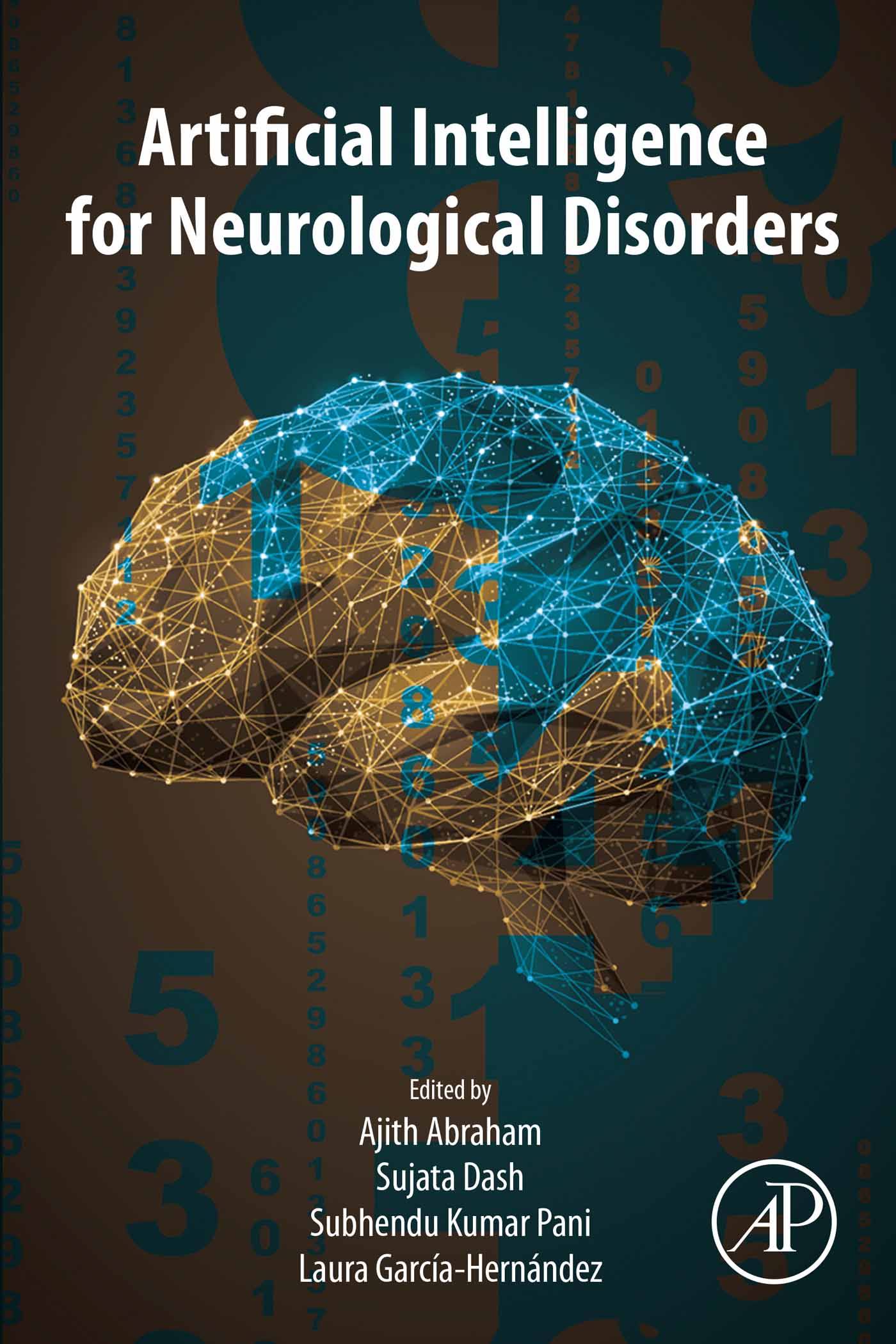
Academic Press is an imprint of Elsevier
125 London Wall, London EC2Y 5AS, United Kingdom
525 B Street, Suite 1650, San Diego, CA 92101, United States
50 Hampshire Street, 5th Floor, Cambridge, MA 02139, United States
The Boulevard, Langford Lane, Kidlington, Oxford OX5 1GB, United Kingdom
Copyright 2023 Elsevier Inc. All rights reserved.
No part of this publication may be reproduced or transmitted in any form or by any means, electronic or mechanical, including photocopying, recording, or any information storage and retrieval system, without permission in writing from the publisher. Details on how to seek permission, further information about the Publisher's permissions policies and our arrangements with organizations such as the Copyright Clearance Center and the Copyright Licensing Agency, can be found at our website: www.elsevier.com/permissions.
This book and the individual contributions contained in it are protected under copyright by the Publisher (other than as may be noted herein).
Notices
Knowledge and best practice in this field are constantly changing. As new research and experience broaden our understanding, changes in research methods, professional practices, or medical treatment may become necessary.
Practitioners and researchers must always rely on their own experience and knowledge in evaluating and using any information, methods, compounds, or experiments described herein. In using such information or methods they should be mindful of their own safety and the safety of others, including parties for whom they have a professional responsibility.
To the fullest extent of the law, neither the Publisher nor the authors, contributors, or editors, assume any liability for any injury and/or damage to persons or property as a matter of products liability, negligence or otherwise, or from any use or operation of any methods, products, instructions, or ideas contained in the material herein.
ISBN 978-0-323-90277-9
For information on all Academic Press publications visit our website at https://www.elsevier.com/books-and-journals

Publisher: Nikki Levy
Acquisitions Editor: Joslyn Chaiprasert-Paguio
Editorial Project Manager: Kristi Anderson
Production Project Manager: Sreejith Viswanathan
Cover Designer: Miles Hitchen
Typeset by STRAIVE, India
We dedicate the book to our family members, contributing authors, and the staff at Elsevier, especially Ms. Kristi Anderson. Without their patience, understanding, support, and most of all love, the completion of this book would not have been possible.
Ajith Abraham, Editor
Sujata Dash, Editor
Subhendu Kumar Pani, Editor
Laura Garca-Hernndez, Editor
Mayowa J. Adeniyi Department of Physiology, Edo State University Uzairue, Iyamho, Nigeria
Charles O. Adetunji Department of Microbiology, Applied Microbiology, Biotechnology and Nanotechnology Laboratory, Edo State University Uzairue, Iyamho, Nigeria
Olorunsola Adeyomoye Department of Physiology, University of Medical Sciences, Ondo, Nigeria
Rishabh Anand Service Deliver Manager, HCL Technologies Limited, New Delhi, India
Korhan Cengiz College of Information Technology, University of Fujiarah, Fujairah, United Arab Emirates
Ayobami Dare Department of Physiology, School of Laboratory Medicine and Medical Sciences, College of Health Sciences, Westville Campus, University of KwaZulu-Natal, Durban, South Africa
Sujata Dash Department of Computer Application, Maharaja Sriram Chandra Bhanja Deo University, Baripada, Odisha, India
Pijush Dutta Department of Electronics and Communication Engineering, Greater Kolkata College of Engineering and Management, West Bengal, India
Alex Enoch Department of Human Physiology, Ahmadu Bello University Zaria, Zaria, Nigeria
M.A. Jabbar Department of CSE (AI & ML), Vardhaman College of Engineering, Hyderabad, India
Maheshkumar H. Kolekar Department of Electrical Engineering, Indian Institute of Technology Patna, Bihta, Patna, Bihar, India
Asok Kumar Student Welfare Department, Vidyasagar University, Medinipur, West Bengal, India
Hima Bindu Maringanti MSCB University, Baripada, Odisha, India
Minati Mishra P.G. Department of Computer Science, Fakir Mohan University, Balasore, Odisha, India
Ricky Mohanty School of Information System, ASBM University, Bhubaneswar, India
Nihar Ranjan Nayak Department of MCA, Sri Venkateswara College of Engineering & Technology (Autonomous), Chittoor, Andhra Pradesh, India
Olugbemi T. Olaniyan Department of Physiology, Laboratory for Reproductive Biology and Developmental Programming, Rhema University, Aba, Nigeria
Sagar Dhanraj Pande Intelligent System, School of Computer Science and Engineering, Lovely Professional University, Phagwara, Punjab, India
Subhendu Kumar Pani Krupajal Computer Academy, Bhubaneswar, India
Shobhandeb Paul Department of Electronics and Communication Engineering, Guru Nanak Institute of Technology, Kolkata, West Bengal, India
Subhransu Pradhan Directorate of Health Services, Bhubaneswar, Odisha, India
Syed Saba Raoof Department of CSE, VIT University, Vellore, India
V. Selvakumar Department of Maths and Statistics, Bhavan's Vivekananda College of Science, Humanities and Commerce, Hyderabad, Telangana, India
Neelam Sharma Electrical and Instrumentation Engineering Department, Thapar Institute of Engineering and Technology, Patiala, Punjab, India
K. Rupabanta Singh Department of Computer Application, Maharaja Sriram Chandra Bhanja Deo University, Baripada, Odisha, India
Brijesh K. Soni Department of Computer Science and Technology, AKS University, Satna, Madhya Pradesh, India
Mukesh Soni Department of Computer Science and Engineering, Jagran Lakecity University, Bhopal, India
Akhilesh A. Waoo Department of Computer Science and Technology, AKS University, Satna, Madhya Pradesh, India
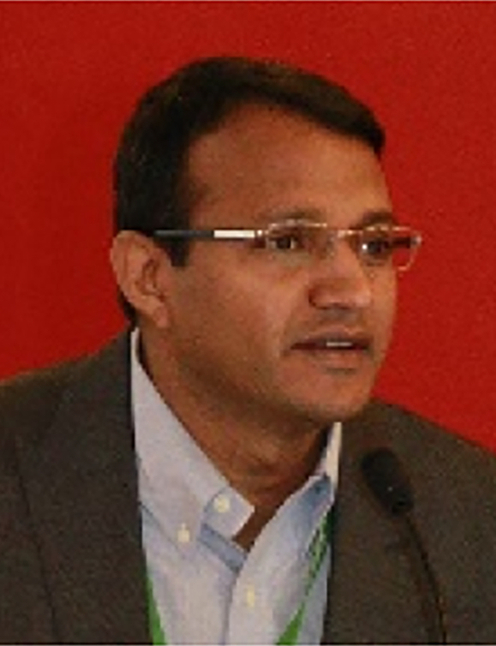
Dr. Abraham is the director of Machine Intelligence Research Labs (MIR Labs), a Not-for-Profit Scientific Network for Innovation and Research Excellence connecting Industry and Academia. The Network with HQ in Seattle, USA has currently more than 1500 scientific members from over 105 countries. As an Investigator/Co-Investigator, he has won research grants worth over 100+ million US$. Since 2021, he holds two University Professorial appointments. He works as a Professor of Artificial Intelligence in Innopolis University, Russia and is the Yayasan Tun Ismail Mohamed Ali Professorial Chair in Artificial Intelligence of UCSI, Malaysia. Dr. Abraham works in a multidisciplinary environment and he has authored/co-authored more than 1400+ research publications, out of which there are 100+ books covering various aspects of Computer Science. One of his books was translated to Japanese and a few other articles were translated to Russian and Chinese. Dr. Abraham has more than 46,000+ academic citations (h-index of 102+ as per google scholar). He has given more than 150 plenary lectures and conference tutorials (in 20+ countries).
Font size:
Interval:
Bookmark:
Similar books «Artificial Intelligence for Neurological Disorders»
Look at similar books to Artificial Intelligence for Neurological Disorders. We have selected literature similar in name and meaning in the hope of providing readers with more options to find new, interesting, not yet read works.
Discussion, reviews of the book Artificial Intelligence for Neurological Disorders and just readers' own opinions. Leave your comments, write what you think about the work, its meaning or the main characters. Specify what exactly you liked and what you didn't like, and why you think so.

